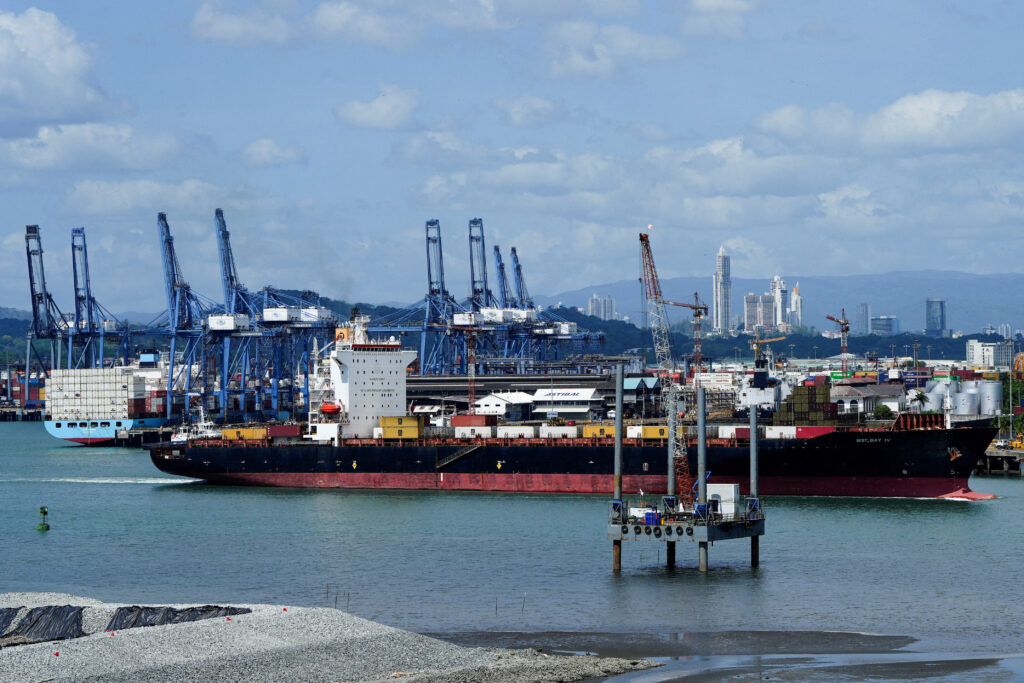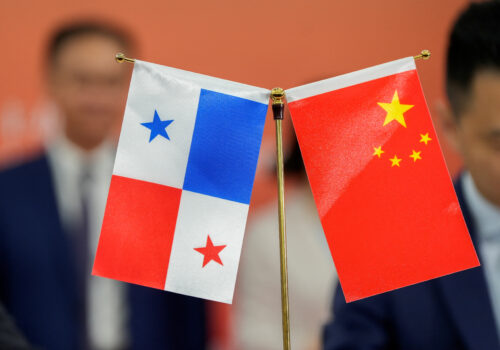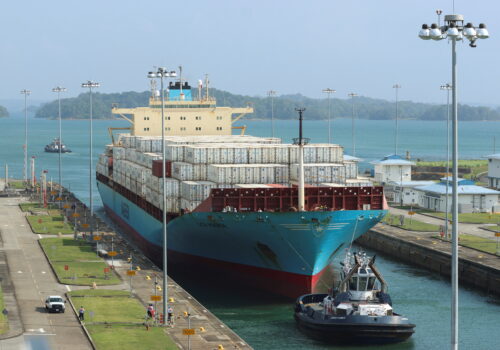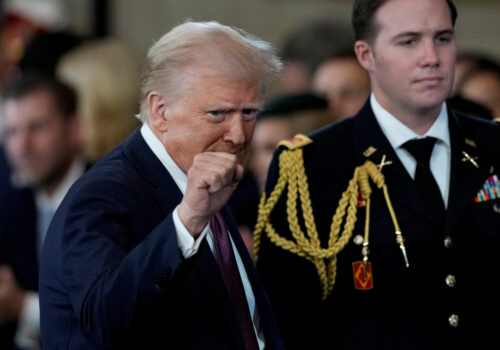HONG KONG—I landed here last week for a series of meetings and events on digital assets, including central bank digital currencies, stablecoins, and how money can move faster around the world. But in nearly every meeting it wasn’t new technology that dominated the discussion—it was old-fashioned physical infrastructure.
Earlier this month, Hong Kong-based CK Hutchison Holdings announced that it would sell a range of global port assets, including the ones operating in the Panama Canal, to the US private equity firm BlackRock. The deal stunned officials in Hong Kong and their counterparts on the mainland, and not just for the deal’s nearly twenty-three-billion-dollar price tag.
Daily front page headlines in the South China Morning Post detailed the latest twists and turns of the unfolding drama. At the center is the company’s founder, Li Ka-shing. The ninety-six-year-old billionaire began his career selling plastic flowers in the 1950s and helped turn Hong Kong into a hub of global finance. In 2000, he was knighted by Queen Elizabeth and, according to press reports at the time, was considered more powerful than China’s then president, Jiang Zemin. Li took that influence and made a series of brilliantly timed investments in the Chinese mainland, understanding where the economic opportunity would be in the years ahead.
The challenge facing Hutchison is a microcosm of the tension between finance and national security that is about to play out around the world.
So it’s understandable why Chinese authorities felt blindsided by his decision to sell the port operations to an American company, right after US President Donald Trump claimed in his inaugural address that China was operating the Panama Canal and “we’re taking it back.” But the level of anger is perhaps what is surprising. An op-ed in the pro-Beijing Ta Kung Pao newspaper (which was then republished by Beijing’s Hong Kong and Macau office) called the sale an act of “betrayal of all Chinese people.” More commentaries have followed, which have called it an act of “submission” and “spineless groveling.” The fact that the deal was announced on the eve of the “two sessions,” China’s most important economic and political event of the year, just added insult to injury for Chinese President Xi Jinping and the Chinese Communist Party.
The entire situation puts both Hong Kong authorities and Chinese officials in a difficult spot. If they make any moves to block the sale—and it’s not even clear whether they could—it would confirm some of the worst concerns about the way Western businesses will be treated in Hong Kong following the passage of the National Security Law in 2020. Right now, Hong Kong is working hard to convince the West that it is still one of the world’s most important financial hubs. As a newspaper report the day I left proudly touted, Hong Kong was “still” the number three financial city behind New York and London. That effort becomes more difficult if this sale is a blocked.
On the other hand, Hong Kong has to show that it’s responsive to Beijing’s concerns. That’s likely why Hong Kong’s chief executive, John Lee Ka-chiu, has taken a balanced approach so far, issuing a statement on the need to weigh the legitimate concerns of society and the importance for businesses to follow the legal process. One of his predecessors, Leung Chun-ying, was less diplomatic, saying: “Do merchants have no motherland?”
Now, Hutchison is working to ensure the deal doesn’t get torpedoed. A report in the South China Morning Post last week said Hutchison would offer twenty-five Hong Kong dollars (about three US dollars) per share as a bonus to shareholders if the deal goes through. The news, unsurprisingly, sent the stock soaring.
At stake here is more than just ports. The challenge facing Hutchison is a microcosm of the tension between finance and national security that is about to play out around the world. Consider the facts. After his inauguration in January, Trump made clear that Chinese companies’ ownership of portions of the Panama Canal was unacceptable. At the same time, he launched a trade war that threatened to slow down global commerce—and hurt the profitability of major port operators such as Hutchison. Weeks later, BlackRock negotiated a deal for a range of assets held by Hutchison. Chinese media have been keen to highlight the longstanding friendship between Trump and BlackRock CEO Larry Fink.
So, what is a veteran businessman like Li supposed to do in a situation like this? He can sell his operations at a profit or wait until the situation deteriorates and he has to sell at a potentially lower rate. He (or members of his family now overseeing the day-to-day operations) likely knew the sale would upset the Chinese authorities, but he also couldn’t ask for permission in advance—likely believing that it wouldn’t be given. If Beijing pushed Hutchison to reject the deal, it would only confirm the suspicions Trump has about the national security priority China puts on port operations. It is truly a tangled geoeconomic web.
The predominant sense in our private conversations during the week was that BlackRock and Hutchison will find a way to seal the deal. There’s too much money at stake, too many aligned interests, and the risks of it failing are too high both for Hutchison and, more importantly, for Hong Kong’s future.
But expect China to find ways to tighten its grip on these kinds of deals going forward. Xi has stated that the world’s reliance on advanced technologies from China would give his country leverage in an economic conflict in the years ahead. Just as important as new technology is hard infrastructure—and Xi knows that, as well. Beijing does not want to be caught blindsided again. The outrage about the ports deal communicated from Beijing in both Chinese and Western media is meant in part to stop any other company from considering something similar. In Hong Kong last week, I could tell that message was being received loud and clear.
Josh Lipsky is the senior director of the Atlantic Council’s GeoEconomics Center and a former adviser to the International Monetary Fund.
Further reading
Mon, Mar 24, 2025
Is China or the US the ‘wolf warrior’ in Latin America now?
New Atlanticist By Caroline Costello
The United States’ harsh rhetoric toward Latin American nations has given China an opportunity to falsely present itself as a more altruistic partner to the region.
Mon, Jan 27, 2025
Expert context: What’s going on with Trump and the Panama Canal?
New Atlanticist By
With US President Donald Trump focusing on the critical waterway early in his second term, Atlantic Council experts explain how the canal came about, why it matters today, and what to expect next.
Mon, Jan 20, 2025
What to know about Trump’s day-one promise to take back the Panama Canal
New Atlanticist By Jason Marczak
Trump's presidency can be an opportunity to further use the tools of the US government to advance the US business presence in Panama.
Image: A ship sails near the Balboa Port after Hong Kong's CK Hutchison Holdings Ltd 0001.HK agreed to sell its interests in a key Panama Canal port operator to a BlackRock Inc-backed consortium, amid pressure from U.S. President Donald Trump to curb China's influence in the region, Panama City, Panama, March 4, 2025. REUTERS/Enea Lebrun.



